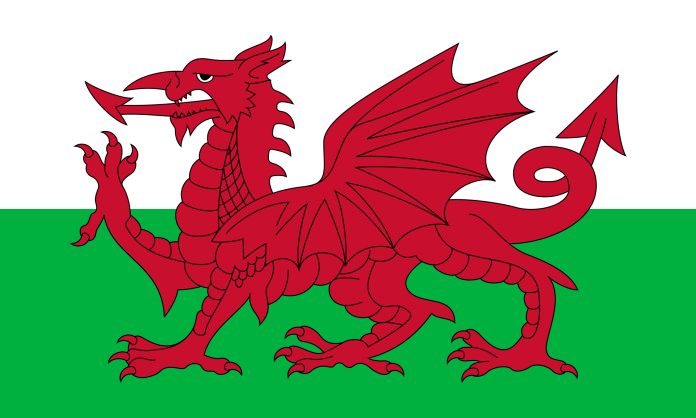A brief note on Saint David, the sixth-century monastic bishop, now patron, of Wales, born at an unknown date, but who likely died on this day, March 1st, in 589, based on what evidence we have. He was acclaimed bishop after an eloquent sermon he gave, denouncing the lingering heresy of Pelagianism – that we don’t need grace to get to heaven, that original sin is not real, and that Man’s efforts alone can save him.
David’s life of trust in God, his quiet and unassuming cooperation with His grace, his life of prayer, immersion in the sacraments and good deeds, seems to have been rather devoid of legendary miracles oft attributed to saints of that era. One recounted is that a hill rose in height as he preached a sermon, prompting a certain modern Welshman to comment that one can hardly think of a more superfluous miracle in that part of Wales, filled with such hillocks.
Regardless, David was renowned for his holiness, his monastic reform, and his evangelical work in establishing Christianity in that once-pagan country. One of his sayings, still popular, is Gwnewch y pethau bychain mewn bywyd – which I will refrain from trying to pronounce, but means something like ‘do ye the little things in life‘, which is very Sainte Theresian, twelve centuries before the French Carmelite.
Wales was, like the rest of the British Isles, solidly Catholic, at least until the tragedy of the Reformation, begun under the predations of Henry VIII, who looted and robbed David’s shrine, as he did the all the other shrines and monasteries of the realm, not one of which survived his pillage and wreckage. Wales is still predominantly Christian – about 72% – but only 6.7% Catholic. And that’s on paper. One wonders what the past few years have done to further undo Saint David’s work. But we hope that what Wales once was, she may be so again.
Thomas More’s quip to Richard Rich that it profits a man nothing to lose his soul for the world, but for Wales, may bring a smile to our lips, with our mind’s eye on much the hilly, rocky solitary terrain. But there is a stark beauty to Wales, and Christ died for Wales, as He died for England, as He died for all of us. May the prayers of Saint David bring us to see that it profits a man everything to give up all things for one individual soul, not least his own.
Saint David, gweddïo drosom!










